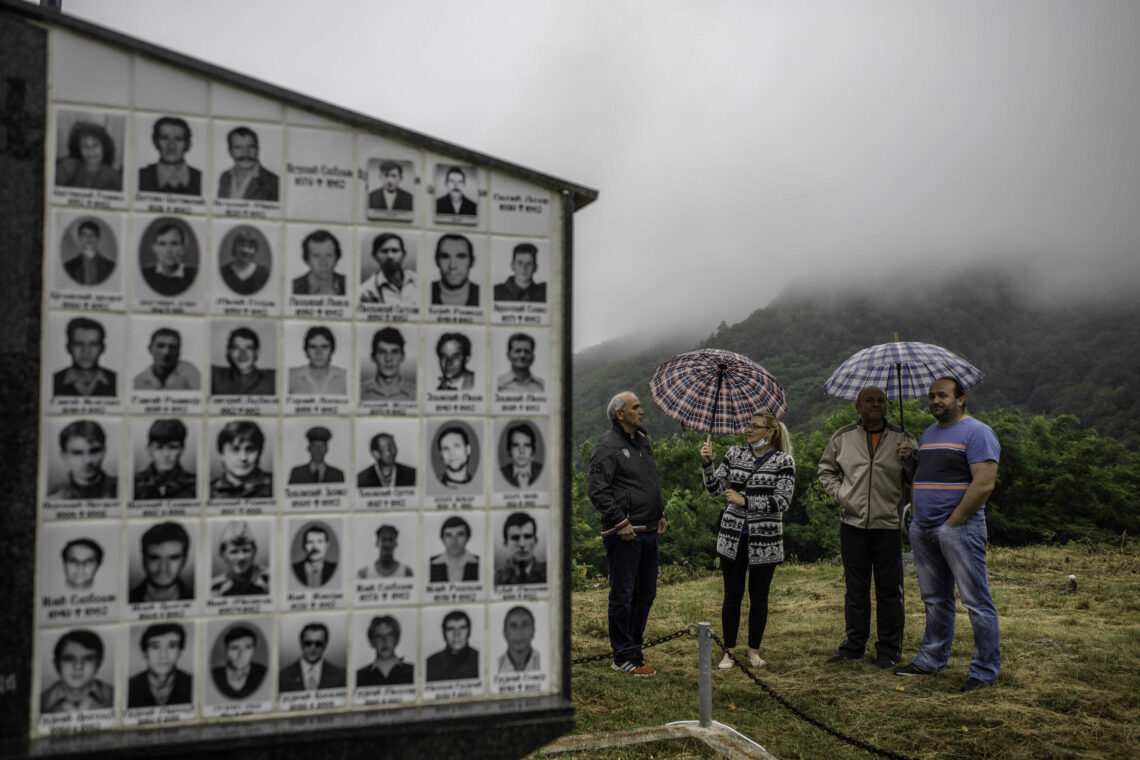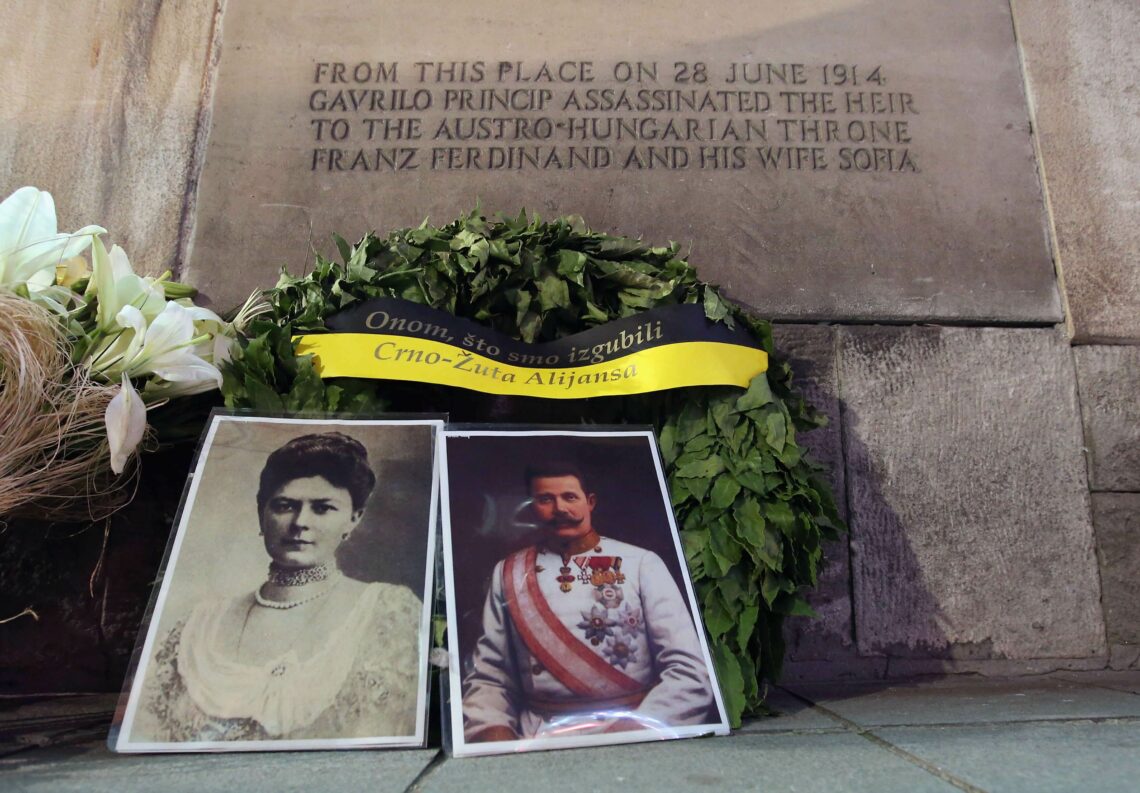Delayed justice: Dayton 25 years later
Twenty-five years ago, the Dayton Agreement ended the Bosnian war. However, Republika Srpska’s ability to veto Bosnian government policy is creating near-constant gridlock, a situation that has delayed the country’s accession to the European Union.

In a nutshell
- The Dayton Agreement created a dysfunctional system
- The Serbian minority’s veto power is paralyzing Bosnia
- Serbia’s influence will bring Sarajevo closer to Moscow
This November will mark the 25th anniversary of the Dayton Agreement. Concluded at an Ohio air force base on November 21, 1995, and signed in Paris on December 14 by the presidents of Bosnia and Herzegovina, Croatia and the Federal Republic of Yugoslavia, the accord brought the brutal four-year Bosnian War to an end. However, it failed to create a functional postwar governmental structure. Previously a unitary state, Bosnia was federalized and an unwieldy peace was chosen over a viable political system.
From 1992 till 1995, several international efforts were made to achieve peace. European diplomacy and UN peacekeeping unsuccessfully endeavored to end the war. The Srebrenica genocide was the final wake-up call.
In 2017, the International Criminal Tribunal for Former Yugoslavia (ICTY) convicted former Serbian military commander Ratko Mladic of war crimes, genocide and crimes against humanity. In 1992, General Mladic, under the instructions of then Yugoslav President Slobodan Milosevic, created a Serbian army in Bosnia and Herzegovina, which was backed by the Yugoslav army and Serbian paramilitary troops. This military organization eventually came to control 70 percent of Bosnia’s territory. General Mladic and his 90,000 soldiers committed ethnic cleansing, culminating with the Srebrenica genocide. Their aim was to create a new Serbian Republic comprising parts of Bosnia and Croatia.
State within a state
In 1995, there were two decisive events that led to the Dayton talks. First, Bosnian President Alija Izetbegovic and Croatian President Franjo Tudjman agreed to establish Bosnian-Croatian military cooperation. Then a Croatian offensive against Serbian troops in Krajina allowed the Bosnian-Croatian army to take over half of the territory.
If the ICTY upholds its 2017 ruling, which is currently under appeal, General Mladic’s crimes will be the first genocide in Europe after World War II – a blatant failure of UN peacekeeping and preventive diplomacy. Instead of being penalized, the perpetrators were rewarded with a distinct entity within the Bosnian Federation: Republika Srpska.
Bosnia and Herzegovina is internally paralyzed and isolated on the world stage.
Europe hesitated for too long, and the war ended only once NATO intervened. Although Washington initially wavered because of EU opposition, President Bill Clinton did not want a repetition of the 1994 Rwandan genocide. The conflict on the ground came to a standstill, and a diplomatic face-off began at a military base near Dayton, Ohio. After three weeks, the model of “a state within a state” was agreed upon, federalizing Bosnia and creating a new entity with veto power. Although the Bosnian President was initially unwilling to accept this solution, he finally declared that: “This is not a just peace, but my people need peace.”
After a quarter-century of peace based on the Dayton Agreement, Bosnia and Herzegovina remains a nonfunctional state. Sarajevo is hostage to the veto of Banja Luka, Republika Srpska’s de facto capital. The country is internally paralyzed and isolated on the world stage. Milorad Dodik, the leader of Republika Srpska, is pushing for independence. On September 15, he celebrated the “Day of Serbian Unity” with President Aleksandar Vucic, saying that “Serbs have two states.”
Republika Srpska blocked Bosnia’s application for NATO membership and delayed EU integration. Nor does it recognize the Republic of Kosovo. On September 17, the Croat and Bosniak members of Bosnia and Herzegovina’s Presidency wanted to recognize the Republic of Kosovo, but the decision was blocked by Chairman Dodik.
Along with Serbia, the entity has become a Russian ally in the Western Balkans, supporting the Kremlin’s strategy of preventing Euroatlantic integration by perpetuating frozen conflicts. Of political leaders in the Balkans, only President Vucic meets with Russian President Vladimir Putin more often than Mr. Dodik.

Misuse of minorities
Republika Srpska’s strategy in Bosnia and Herzegovina demonstrates how Serbia copies the Russian tactic of using its minorities in neighboring countries to block integration with the West. This was the case in South Ossetia and Abkhazia, in Donbas and Crimea and in Transnistria.
Serbia adopted the same approach in Montenegro through its large Serbian minority, which tried to block NATO membership. Serbian parties also won the elections of August 30. In Kosovo, the Serbian party Srpska Lista performs the same function. Belgrade also tried to create the Zajednica, an association of Serbian municipalities in Kosovo. The Brussels Agreement between Serbia and Kosovo even included provisions on this point, but the Constitutional Court of Kosovo declared them unconstitutional in 2015.
Bosnia’s power-sharing model has become a classic example of state dysfunction.
President Vucic requested that the Zajednica be included in the next agreement to come out of the Brussels Dialogue on the normalization of Kosovo-Serbia relations in the summer of 2020, but Kosovo’s political parties opposed this. A structure similar to Republika Srpska, now in Kosovo, would block the functioning of the state from within and prevent Euroatlantic integration.
Power-sharing or power-blocking
Bosnia’s power-sharing model has become a classic example of state dysfunction. Instead of a power-sharing arrangement, it becomes a power-blocking system. The situation is reminiscent of Lebanon’s 1989 post-conflict agreement, which ended the country’s 15-year civil war.
For years now, legal experts have been asking for constitutional amendments or a new constitution. Experts Kurt Bassuener and Senada Sabic argue that an alternative arrangement is needed because “the Dayton Agreement is a power-sharing pact among erstwhile belligerents that reduces political life to a single category – ethnonational identity, allowing it to permeate the full breadth of public life and both enable and justify control.” They add, “Despite the facade of democracy, the impunity of political and economic power makes corruption the point of politics.”
Though the Dayton agreements ended the war in 1995, the constitution that resulted cannot continue to serve as the legal framework for a country that aspires to join the EU.
Scenarios
The likeliest option is that Bosnia and Herzegovina’s politics will continue to be disrupted by the faults of its current constitution. The complicated legal process necessary to make amendments means it is unlikely that the constitution will be changed to avoid the paralysis caused by Republika Srpska’s veto. Since such constitutional changes would also need to be approved by the Serbian entity, such an outcome is nearly impossible. The only exception would be if a second round of Dayton talks were convened.
Bosnia and Herzegovina’s current constitutional model will delay internal reforms and accession to the EU and NATO. The country will remain a nonfunctional state. Left out of the Euroatlantic club, the country will be low-hanging fruit for Russian meddling, through its ally Republika Srpska.
Bosnia and Herzegovina is a strategic point in the region, with a long history of war. In 1914, World War I began after Serbs assassinated the heir to the throne of the Austro-Hungarian Empire in Sarajevo. For the century that followed, the country managed to preserve its complex ethnic and religious diversity. But now, it faces the highest unemployment rate in the region, high emigration and endemic corruption. The country could become a black hole in the center of the Western Balkans.







